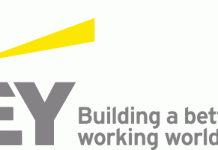The blockchain, the core technology underlying the digital currency bitcoin, has gained much interest from the financial services industry with major players all looking to harness its potential in hopes to gain in efficiency and reduce infrastructural costs. But beyond financial services, a variety of non-financial applications are being explored including its use in the real estate business.
Whether it is banking, supply chain, notary or digital identity, the argument remains the same: blockchain technology represents a total shift away from the traditional ways of doing things.
A blockchain is essentially a global, shared, tamper-proof, distributed ledger or database, running on millions of devices where information and value (money, titles, deeds, intellectual property, etc.) can be moved and stored securely. No single user controls the ledger, and the participants in a blockchain system collectively keep the ledger up to date.
Dubbed “the trust machine” by the Economist, blockchain allows people who have no particular confidence in each other to collaborate without the need of a neutral central authority.
Blockchain in real estate
Blockchain can be used to record and track the details of any transaction or ownership of any asset. Whether it is tangible assets such as real estate, or intangible assets such as intellectual property, this process would typically involve the use of virtual tokens that represent underlying assets.
Among the advantages that have been pointed out, blockchain technology could allow for quicker verification and execution, greater transparency, and could reduce the risk of fraud.
In a report released in March this year, Deloitte detailed the key benefits of using distributed ledger technology in this particular industry:
Total transparency: All data necessary for a transaction is stored in the database and is easily accessible for buyer and seller of real estate. The entire transaction history of the property can be followed through the blockchain, thus avoiding the need of middlemen or due diligence.
Reducing the risk of fraud: A total transparent system of real estate ownership and the possibility to track down the transaction history of each property in the market, reduce the risk of fraud. Blockchain allows for accurate records that identifies the current owner and provides a proof of the ownership.
Speeding up the process of buying or selling a property: With smart contracts, assets exchange can follow specific instructions encoded as part of transaction. Assets exchange would be executed automatically, without the need of human intervention, once the defined criteria are met. A network of computers of the participants in the network would validate the transactions.
Notable developments in 2016
Blockchain technology makes particular sense in the real estate business because “a ledger - a way of recording transactions and recording ownership of assets - is what real estate is all about,” Stuart Appley, CTO of Shorenstein Co., a commercial real estate company, told the Wall Street Journal.
Back in December 2015, Appley predicted that 2016 could well be the year of the industry exploring blockchain, and in this regard, his prediction was spot on. Today, a number of startups are proposing new ways of conducting business in an industry ripe for change that has so far been relying on exchanging a lot of paper between lots of parties.
For instance, several ventures, including Ubitquity, LLC, and Factom, are building platforms that track property ownership via notarizational functionality.
Flip, a secondary marketplace for leases, uses the Bitcoin blockchain to store lessee reports in an immutable and universally readable format. Cleverent, a full service real estate services app, uses the MultiChain blockchain to timestamp and verify legal documents to lease or purchase properties.
In April, the BitFury Group and the Republic of Georgia’s National Agency of Public Registry teamed up for the conception and pilot of a new blockchain land titling project. A blockchain-based property registry can reduce fraud, corruption, error and the cost of paper-intensive processes, Papuna Ugrekhelidze, the Chairman of the National Agency of Public Registry of Georgia, said in a statement.
Sweden, too, has been experimenting with blockchain technology for use in a land registry system. The Swedish Land Registry is working on the project with domestic blockchain startup ChromaWay, consulting firm Kairos Future, and telecommunications service provider Telia.
According to a report by Reuters, the idea is to put real estate transactions on a blockchain once the buyer and seller agree on a deal and a contract is made. Then, all parties involved (banks, government agencies, brokers, buyers and sellers) would be able to track to progress of the deal once it is completed.
Last week, Chinese real estate developer and property manager Xinyuan Real Estate Co., Ltd. unveiled a new blockchain-powered real estate finance technology platform.
The platform, developed in collaboration with IBM, would connect homeowners with an expanding channel of financing options. The company plans to launch the platform in August 2016.









